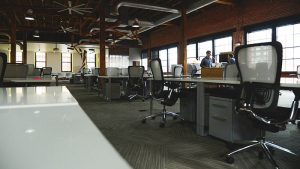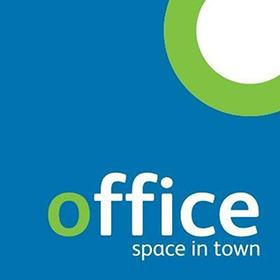
In particular, the pandemic has highlighted the pitfalls and benefits of our current and pre-COVID-19 working environments. With office health, mental wellbeing, connectivity and community emerging as areas that we now recognise as vital to productivity, motivation and morale. Our post-COVID-19 offices will have to adapt.
The healthy office
With recent weeks and months defined by a global health crisis, it would be impossible for health not to be the top of the agenda for employers looking at their post-COVID-19 offices. Environmental factors within the office that have often been overlooked, such as air quality, temperature regulation and lighting – all of which have an impact on our health – will undoubtedly now be a major focus.
As a result, we can expect increased introduction of segmented air conditioning and enhanced natural lighting as vital aspects of our future “healthy” office. Also, an increase in spaces that facilitate ongoing social distancing requirements. In the wake of this pandemic, frequent communal touchpoints, such as lift buttons or shared phones, will also become an area of attention. Contactless technology is likely to emerge as an increasingly popular tool to keep staff healthy and limit the spread of germs.
Mental health support and initiatives
Pressures on communication, tech challenges, and health concerns have understandably added strain on workers during COVID-19. This has prompted mental health and the working environment’s impact on that to come to the fore. The blurring of work and life boundaries, while we work at home, has exacerbated this. Forward-thinking employers are increasingly aware of the role of the physical environment in worker wellbeing. Over half a million people in the UK experienced work-related burnout before the pandemic. Poor mental health resulted in the loss of in the UK in 2018. Therefore it’s hardly surprising that this should be a major factor in what we want in our post-COVID-19 offices.
In response, we should expect our future workspaces to prioritise variety and flexibility. Its need to cater to workers who like quiet areas, as well as those who thrive in a bustling, more collaborative spaces. Furthermore, mental wellbeing technologies are on the rise, be that virtual therapists or meditation platforms. The integration of such initiatives within our workplaces could soon be standard practice.
Communication and connectivity
The major shift to working remotely for many businesses has highlighted the true value of robust modern technologies that enable us to communicate efficiently, rapidly and flexibly. Indeed, few of us working from home have avoided pressures on communication and workload due to tech issues. This makes it completely clear how vital the integration of top-quality IT and tech infrastructure in our workplaces is to productivity.
The surge in demand for high-quality technology will increase the reliance on consistent connectivity in our post-COVID-19 offices. In some areas of the country, this is woefully lacking. Improved infrastructure such as modern AV amenities and basics such as high-speed internet networks will be vital in providing a more streamlined way of working – both for employees based physically in the office, as well as those who continue to work remotely to some degree.
Community culture and social interaction
The reduced contact and isolation from our colleagues, as well as family and friends, during the pandemic, has led many workers to recognise the value of community that comes from being at work. When we return to the office, workers will, as a result, increasingly demand and benefit from workspaces that put collaboration and community at their heart.
In months to come, we can expect there to be a growing preference for workspaces that feature break out areas that promote collaboration and socialisation, helping to foster strong team relationships. Furthermore, offices that foster a collaborative culture by prioritising social initiatives should expect to see a marked difference in employee morale and retention.
The current COVID-19 pandemic has put the quality of our working environments in sharp focus. For a long time, many have overlooked factors such as health, mental wellbeing and community, while digital connectivity can often be treated as a bonus rather than a necessity. When we return to the office after COVID-19 passes – and we will – these factors will no longer be possible to neglect.

To provide the right location for businesses, OSiT uses a long established matrix which considers a multiple of criteria from the locality of transport hubs to the vicinity of the nearest M&S. Once identified, the buildings are refurbished to the highest standard led by an experienced design team creating stimulating working environments for clients and their staff.
OSiT always consider which elements are needed to support a really effective working environment, proving not only the serviced office itself but also lounge areas for informal meetings, breakout space for clients to work flexibly, free meeting rooms, conferencing rooms for the more important and formal meetings, event space, roof terraces, showers, bike racks, beauty salons, serviced bedrooms, communal kitchens, onsite cafes/bars and reception areas that make a lasting impression.

























